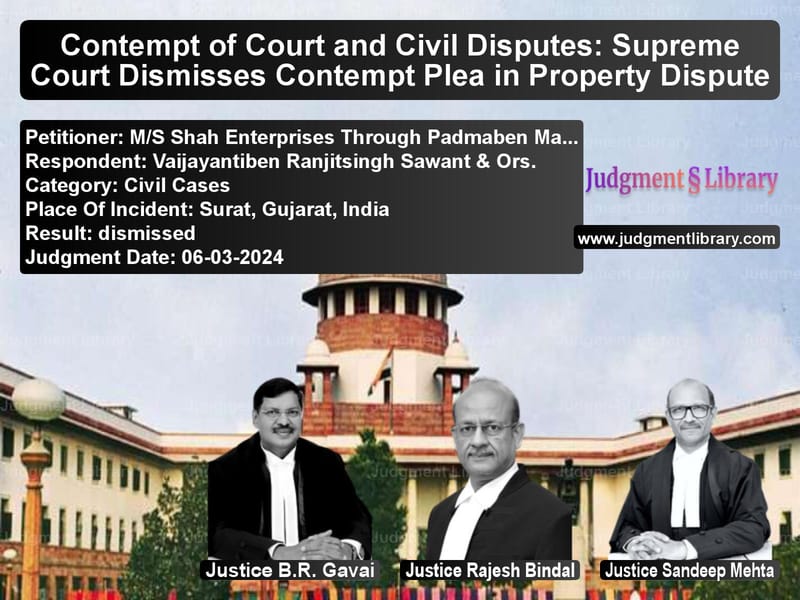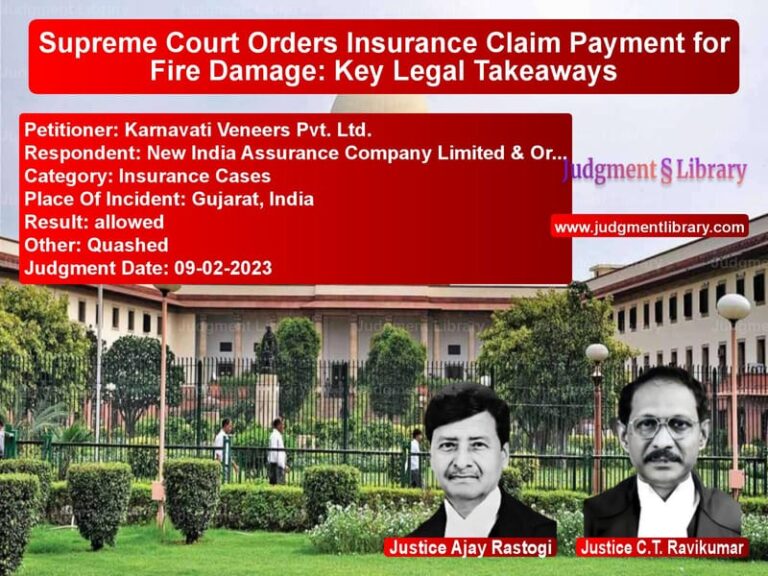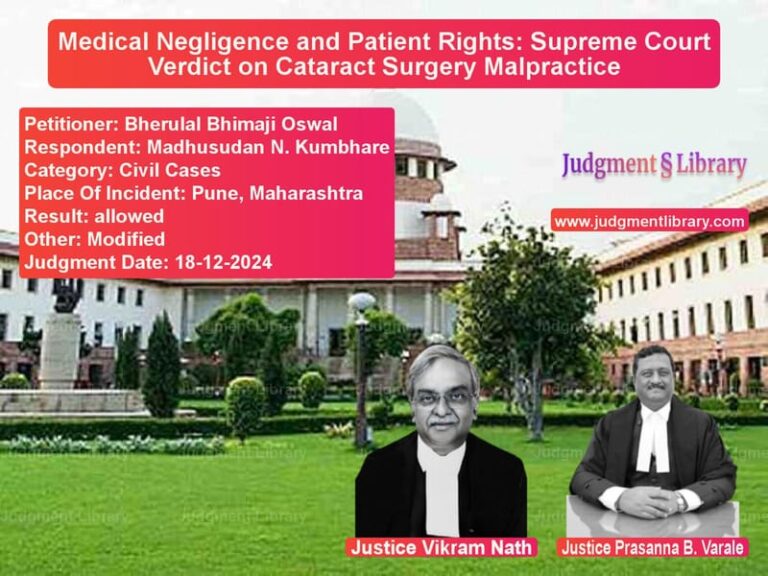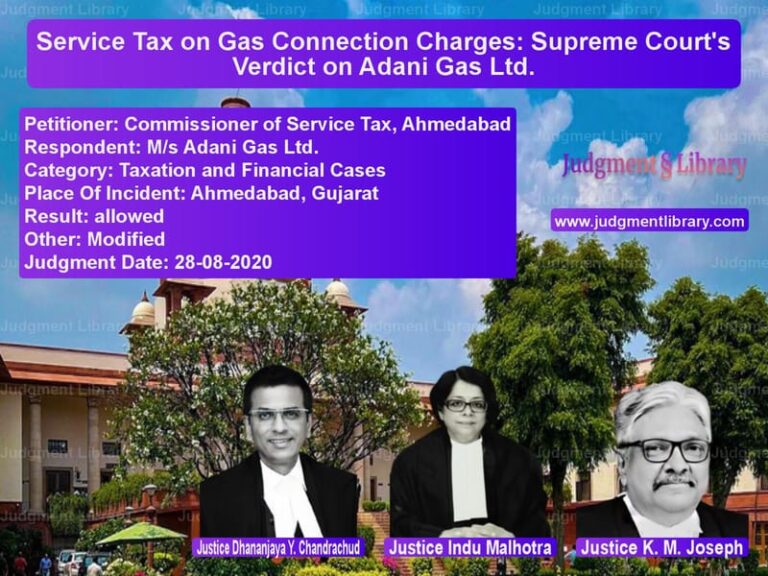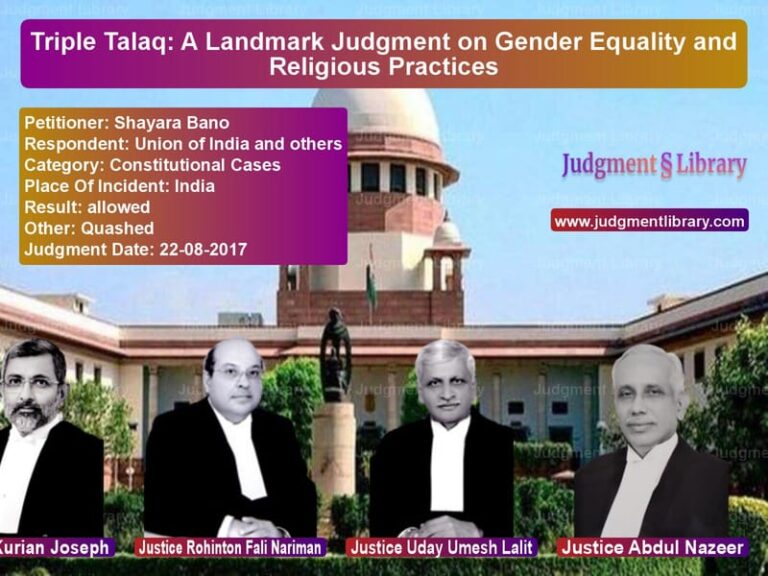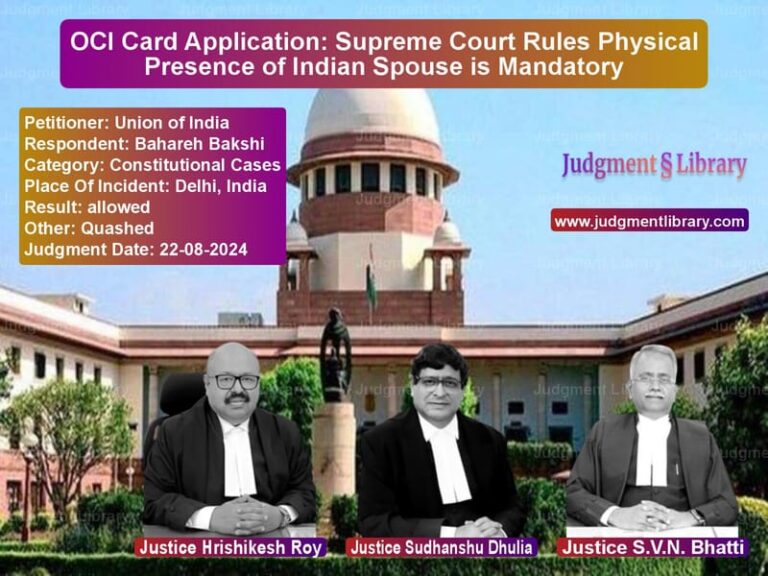Contempt of Court and Civil Disputes: Supreme Court Dismisses Contempt Plea in Property Dispute
The Supreme Court of India recently ruled on a significant case concerning contempt of court in civil disputes in M/S Shah Enterprises v. Vaijayantiben Ranjitsingh Sawant & Ors. The case involved a property dispute dating back to a 1953 lease agreement, a consent decree issued in 1972, and subsequent litigation challenging property rights. The primary issue before the Court was whether filing a civil suit in violation of a consent decree constitutes contempt of court.
The Gujarat High Court had earlier dismissed the contempt petition, holding that filing a civil suit asserting legal rights does not amount to contempt. The Supreme Court upheld this decision, clarifying the legal boundaries of contempt jurisdiction.
Petitioners’ Arguments
The appellant, M/S Shah Enterprises, argued that:
- The legal heirs of the original leaseholder had no right to file a new suit challenging the consent decree of 1972, which had settled the matter.
- Filing a suit contradicting a court-approved compromise agreement is an act of defiance against the judicial process.
- The Gujarat High Court erred in dismissing the contempt petition, as it should have recognized that reopening the settled issue was a deliberate abuse of process.
- Relying on the precedent in Delhi Development Authority v. Skipper Construction, the appellant contended that misuse of legal proceedings to undermine judicial orders amounts to contempt.
Respondents’ Arguments
The respondents, who were legal heirs of the original leaseholder, countered that:
- The appellant was not a party to the 1972 consent decree and therefore had no standing to allege contempt.
- The property in question spanned over 2082 acres, whereas the appellant’s claim was limited to 20 acres, making their contempt petition irrelevant to the broader dispute.
- The contempt petition was an attempt to preempt the outcome of the civil suit, which was still pending in the trial court.
- The respondents had already sought remedies under the Civil Procedure Code (CPC), including preliminary issues of limitation and res judicata, which the trial court had addressed.
Supreme Court’s Observations
The Supreme Court analyzed the case by distinguishing between procedural violations and acts that truly amount to contempt. The key observations were:
- Mere filing of a suit does not amount to contempt: The Court reaffirmed that seeking legal remedies through civil suits, even if they challenge a prior decree, does not automatically constitute contempt.
- Consent decrees must be respected but can be contested: While the respondents’ ancestors had agreed to the 1972 compromise, their legal heirs were entitled to assert their claims independently.
- Participation in legal proceedings undermines the contempt claim: The appellant had already engaged in the civil case, including raising issues of limitation and res judicata, and could not simultaneously argue that the suit itself was contemptuous.
- Skipper Construction case was different: Unlike Skipper Construction, where the contemners deliberately violated Supreme Court orders, the present case involved a legitimate legal claim pursued through established judicial procedures.
Key Judicial Remarks
In rejecting the appeal, the Supreme Court stated:
“By no stretch of imagination, it could be said that the filing of the suit for asserting the rights of the plaintiffs/respondents could be said to be amounting to contempt of the Court.”
Regarding the distinction between civil disputes and contempt proceedings, the Court observed:
“There is no adjudication. No doubt that the consent terms entered into between one of the predecessors-in-title of the respondents and the Original Owners have received the imprimatur of the Court. However, the respondents claiming their ancestral rights over more than 2000 acres of land and also claiming that the said consent decree was obtained in collusion, had filed the suit in question.”
Final Judgment
The Supreme Court dismissed the appeal, affirming that the filing of a suit does not amount to contempt. It held that:
- The civil suit must proceed on its merits without being hindered by contempt allegations.
- Observations made in the judgment should not influence the trial court’s final decision.
- Contempt jurisdiction should not be used to stifle legitimate legal claims.
Conclusion
This judgment clarifies the scope of contempt jurisdiction in civil disputes, emphasizing that courts must differentiate between defiance of judicial authority and legal challenges within the judicial framework. The ruling protects litigants’ rights to seek judicial redress while ensuring that contempt powers are not misused to curtail genuine legal proceedings.
Petitioner Name: M/S Shah Enterprises Through Padmaben Mansukhbhai Modi.Respondent Name: Vaijayantiben Ranjitsingh Sawant & Ors..Judgment By: Justice B.R. Gavai, Justice Rajesh Bindal, Justice Sandeep Mehta.Place Of Incident: Surat, Gujarat, India.Judgment Date: 06-03-2024.
Don’t miss out on the full details! Download the complete judgment in PDF format below and gain valuable insights instantly!
Download Judgment: ms-shah-enterprises-vs-vaijayantiben-ranjit-supreme-court-of-india-judgment-dated-06-03-2024.pdf
Directly Download Judgment: Directly download this Judgment
See all petitions in Contract Disputes
See all petitions in Property Disputes
See all petitions in Public Interest Litigation
See all petitions in Judgment by B R Gavai
See all petitions in Judgment by Rajesh Bindal
See all petitions in Judgment by Sandeep Mehta
See all petitions in dismissed
See all petitions in supreme court of India judgments March 2024
See all petitions in 2024 judgments
See all posts in Civil Cases Category
See all allowed petitions in Civil Cases Category
See all Dismissed petitions in Civil Cases Category
See all partially allowed petitions in Civil Cases Category

